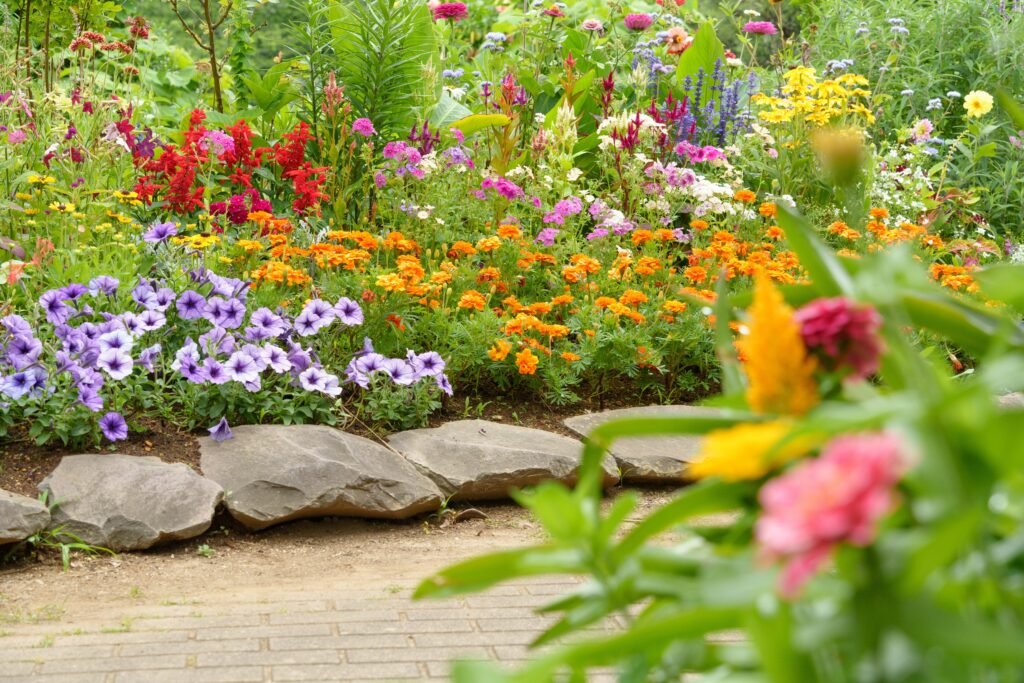By Rob Bullock robbullockauthor.blogspot.com

In recent years British summers have seen long spells of hot dry weather which can be bad for our gardens, here are some ways to deal with it.
Whilst summer is the perfect time to sit back and enjoy the fruits of your labour in the garden, it can also be a time when possible extreme heat and drought can wreak havoc, but there is plenty you can do to deal with everything July and August can throw at you.
Watering
When it is hot and dry watering is especially important, and not just the amount but when and how you water.
Deep watering can help plants. This is where you water less frequently but more thoroughly and this encourages deep root growth, which is especially useful during dry spells, as the deeper down the roots grow the better plants can deal successfully with dry conditions.
Morning or evening watering is not only best for you, the gardener, as you won’t be exposed to the high temperatures or summer sun, but also for your plants because there is less evaporation. So, water very early or as the sun goes down.
Irrigation An irrigation system might not be something you can set up at the height of summer but could be a project you plan to have installed either by yourself or professionally in autumn or next spring. Irrigation helps water get where it
needs to be with minimal evaporation. Irrigation systems also water your garden when you are away and could prove a great investment.
Collect rainwater to make the best use of those thundery summer downpours. By setting up water butts you can collect rainwater to reduce your metered water use. Front and back of your house, garage and even sheds could house water collection systems.
Mulching
With water often in short supply, reducing any evaporation through mulching is a good thing, it is easy to do, and it also has the added bonus of suppressing weed growth.
There are various mulches you can use which include shredded bark, wood chips or straw. You could even create your own home-made mulch by using the grass cuttings from your lawn and applying it in a deep layer. All organic mulches will require topping up and even though they suppress weeds to a large extent, regular weeding will ensure your plants are not crowded out by unwanted guests.
Other summer jobs
Greenhouses and cloches can be extremely hot in summer, so consider maximising ventilation and covering sun exposed glass perhaps with thick cardboard or old carpet to block the sun. There are also products that can be purchased to do this.
In the height of the summer consider mowing a little less as keeping your grass longer will protect your lawn from the heat and sun.
Ponds can lose a lot of water in a drought, so regularly check the level and top up if required.
After all this why not consider selecting some shady spot to sit in and enjoy the wonderful months of July and August.












